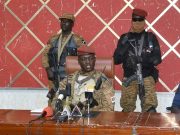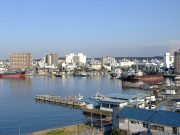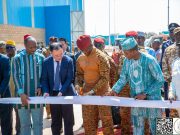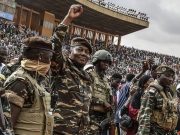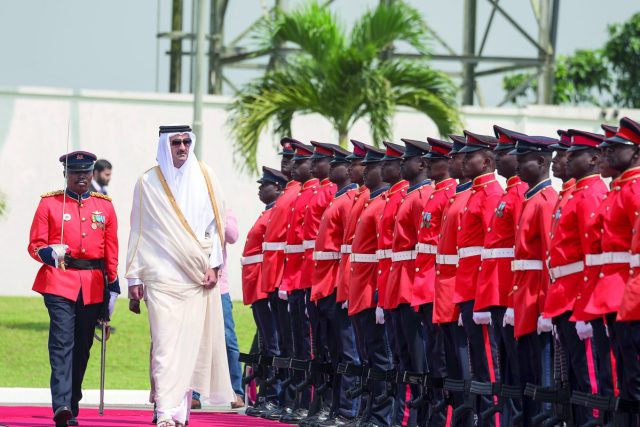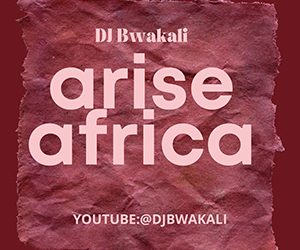Not long ago, Qatar was a country boxed in by its neighbors. The 2017 Gulf blockade was supposed to squeeze it into submission. Instead, it forced Doha to reinvent itself as a global mediator and investor, a state that survives and thrives not through size but through strategy. Africa, with its vast minerals, young markets, and fragile states, has now become the theater for Doha’s most aggressive expansion.
In the past two months alone, Qatar-linked firms have pledged eye-watering sums across the continent: $12 billion in Botswana, $20 billion in Mozambique, and the activation of a $7.5 billion package in Egypt. That is almost $40 billion in less than sixty days, and that is just what has been announced publicly. Numbers like these are not random. They are the visible tips of deeper ambitions.
Why spend now? Part of the answer lies in energy. Qatar is the world’s LNG powerhouse, but its rulers know that energy demand and supply chains are shifting. By taking upstream stakes in Algeria, pushing into Mozambique’s LNG revival, and exploring African gas basins, Doha is buying not only reserves but also options. Energy corridors are being laid out quietly under the cover of “development pledges.” Every new port, every pipeline or power deal in Africa strengthens Qatar’s role in tomorrow’s global energy order.
Soft power opens the door, hard capital locks it.
But the story is not just underground. Look to the skies. Qatar Airways has taken equity stakes in Airlink in South Africa and flirted with RwandAir partnerships. These are not just airline ventures; they are arteries of influence. When Doha controls routes, code shares, and ground-handling rights, it controls flows of people and goods, and with that, a slice of sovereignty. Airports and flight paths become as political as pipelines.
This pattern is not new. Doha has always paired diplomacy with investment. Its mediation in Darfur, Somalia, and Sudan–Chad talks gave it goodwill and visibility, but soon after, you would see Qatari money appear in ports, airlines, or reconstruction funds. Soft power opens the door, hard capital locks it.
The danger for Africa lies in how these deals are structured. Many MoUs are vague until “activated,” long after leaders have posed for photographs and returned home trumpeting billions. Parliamentary oversight rarely occurs. Sovereign guarantees, arbitration clauses that waive immunity, and long-dated concessions become the fine print that bends sovereignty quietly but decisively. Nigeria’s recent brush with the P&ID arbitration case shows how disastrous these arrangements can be. What began as a small contract spiraled into a $10 billion claim against the treasury, nearly bankrupting a nation.
Ports and airports leased for decades, minerals locked away under opaque agreements, passenger data flowing through foreign servers—these are not just commercial details. They are questions of who holds power. When such control extends over half a century, it outlasts presidents and parliaments, leaving states hostage to contracts that cannot be easily undone.
And then there is the politics of pledges. For every headline promise of billions, only a fraction ever disburses. African leaders return from Doha or Gaborone with triumphant announcements, but years later, communities still wait for the roads, clinics, or factories that were promised. The billions buy influence instantly, but development is deferred indefinitely.
So what is Qatar’s real agenda? Strip away the diplomatic niceties and it is clear: Doha wants energy security, logistics corridors, and geopolitical relevance. Africa gives it all three. Gas fields from Mozambique to Algeria shore up its energy portfolio. Airline stakes and port projects extend its reach across Red Sea and Indian Ocean lanes. Mediation and aid make it appear indispensable to both African governments and Western allies eager for stability.
The more pressing question, though, is how Africa should respond. We cannot afford to treat these billions as manna from heaven. They are leverage, and leverage can work both ways. African states must set the rules: every strategic concession must be transparent, published, and ratified by parliaments. Arbitration clauses must protect sovereign assets, not surrender them. Local content, job creation, and technology transfer must be measurable and enforceable, not aspirational footnotes.
We should also insist on blending Qatari capital with our own regional funds and with African Development Bank syndicates. That way, no single foreign creditor holds the keys to our future. And perhaps most importantly, continental bodies like the African Union must step in to standardize investment codes so that no one Gulf state can play one African country against another.
Qatar’s billions can either build Africa or bend it. If we remain consumers of capital without negotiating the terms, we will find ourselves in a new kind of dependency—contracts and concessions instead of colonies and protectorates. But if we negotiate boldly, transparently, and collectively, then we can turn this Gulf rush into a lever for real sovereignty.
The lesson of history is simple. Foreign powers will always seek corridors of influence in Africa. What matters is whether we, the heirs of those who fought for independence, have the courage and discipline to write the contracts of tomorrow in our own interests. That is the choice before us today: to be built up as states, or to be bent into clienthood once again.
